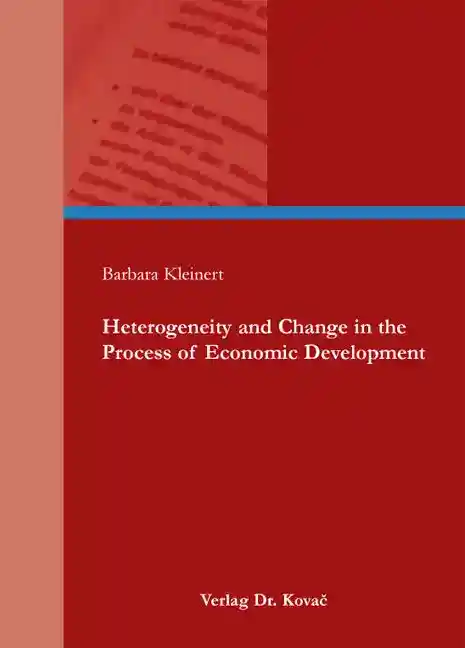Barbara KleinertHeterogeneity and Change in the Process of Economic Development
- in englischer Sprache -
Schriftenreihe volkswirtschaftliche Forschungsergebnisse, Band 177
Hamburg 2012, 180 Seiten
ISBN 978-3-8300-6203-5 (Print)
ISBN 978-3-339-06203-1 (eBook)
Zum Inhalt
This book provides a thorough analysis of the interaction of heterogeneous economic agents and the overall economy with respect to the dynamics of economic growth and development. As the diversity of individuals is the spice of social existence, heterogeneity is presumably a major driving force in market economies and the reason for phenomena, which are hard to explain otherwise. Assuming heterogeneous agents allows to analyze not only the impact of decisions on the overall economy but also the specific behavior of the single agent. To point on the importance of heterogeneity in economic analysis, this book applies this intriguing feature to the evolution of firms as well as to the observed international movement of labor.
The evolution of firms with special regard to the product life cycle and firm size composition is at the heart of the analyses of the first part of the book. Firm activities drive economic growth, which itself governs the evolution of firms. I present two models of endogenous growth that capture the dynamics of Schumpeterian creative destruction. Appearing new products drop already existing ones out of the market. But for a period of time both old and new goods coexist before the least efficiently produced products among the oldest are replaced first. Both models use a simple mechanism of knowledge diffusion to transform firm-specific knowledge into general knowledge of the overall economy which on the one hand induces economic growth but on the other hand causes product obsolescence and endogenous market exit of firms.
In the second part, the book focuses on the impact of a change in the migration regime for skilled labor on people of different educational status and the resulting educational composition. This in turn determines the production composition in the sending country‘s economy as well as prices and consumption patterns. This allows identifying winners and losers in the process of migration. Thereby, the analysis adds to the debate on harms and benefits from skilled migration.
